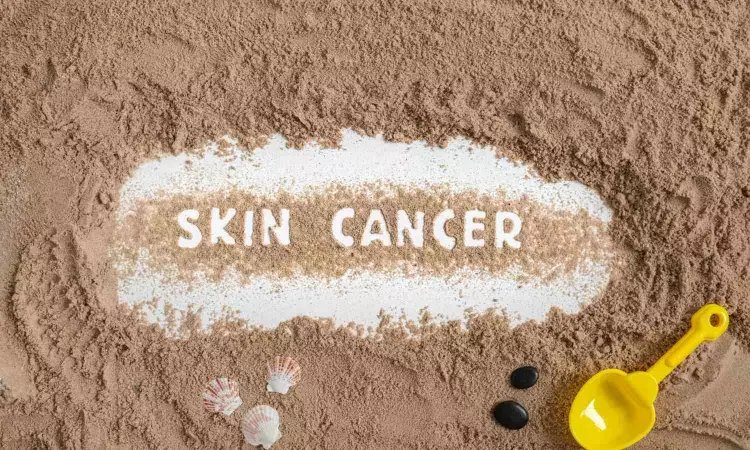- Home
- Medical news & Guidelines
- Anesthesiology
- Cardiology and CTVS
- Critical Care
- Dentistry
- Dermatology
- Diabetes and Endocrinology
- ENT
- Gastroenterology
- Medicine
- Nephrology
- Neurology
- Obstretics-Gynaecology
- Oncology
- Ophthalmology
- Orthopaedics
- Pediatrics-Neonatology
- Psychiatry
- Pulmonology
- Radiology
- Surgery
- Urology
- Laboratory Medicine
- Diet
- Nursing
- Paramedical
- Physiotherapy
- Health news
- Fact Check
- Bone Health Fact Check
- Brain Health Fact Check
- Cancer Related Fact Check
- Child Care Fact Check
- Dental and oral health fact check
- Diabetes and metabolic health fact check
- Diet and Nutrition Fact Check
- Eye and ENT Care Fact Check
- Fitness fact check
- Gut health fact check
- Heart health fact check
- Kidney health fact check
- Medical education fact check
- Men's health fact check
- Respiratory fact check
- Skin and hair care fact check
- Vaccine and Immunization fact check
- Women's health fact check
- AYUSH
- State News
- Andaman and Nicobar Islands
- Andhra Pradesh
- Arunachal Pradesh
- Assam
- Bihar
- Chandigarh
- Chattisgarh
- Dadra and Nagar Haveli
- Daman and Diu
- Delhi
- Goa
- Gujarat
- Haryana
- Himachal Pradesh
- Jammu & Kashmir
- Jharkhand
- Karnataka
- Kerala
- Ladakh
- Lakshadweep
- Madhya Pradesh
- Maharashtra
- Manipur
- Meghalaya
- Mizoram
- Nagaland
- Odisha
- Puducherry
- Punjab
- Rajasthan
- Sikkim
- Tamil Nadu
- Telangana
- Tripura
- Uttar Pradesh
- Uttrakhand
- West Bengal
- Medical Education
- Industry
Elevated serum vitamin D levels are linked with higher skin cancer risk, finds study

Skin cancer, the most common global malignancy, is linked to ultraviolet (UV)-driven serum 25-hydroxyvitamin D (25(OH)D)synthesis, with its controversial role possibly reflecting cumulative UV exposure. This study aimed to assess the association and causality between 25(OH)D levels and skin cancer risk using the National Health and Nutrition Examination Survey (1999–2018) data and Mendelian randomization (MR) analyses, evaluating 25(OH)D as a screening biomarker.
We integrated data from the National Health and Nutrition Examination Survey (1999–2018; n = 21,357 U.S. adults, including 631 skin cancer cases) with MR analyses using genome-wide association study-derived genetic variants to assess the causal relationship between serum 25(OH)D levels and skin cancer risk.
Higher 25(OH)D levels were associated with increased risks of nonmelanoma skin cancer [odds ratio (OR) (95% confidence interval (CI)) = 2.94 (2.10, 4.20)], melanoma [OR (95% CI) = 2.94 (1.73, 5.28)], and other skin cancers [OR (95% CI) = 2.10 (1.36, 3.36)]. MR analyses supported a causal relationship for nonmelanoma skin cancer [OR (95% CI) = 1.01 (1.00, 1.02)] and melanoma [OR (95% CI) = 1.00 (1.00, 1.01)]. Risks were highest in males, older adults, and individuals with obesity.
People with higher vitamin D levels had nearly 3× the odds of getting skin cancer compared to those with lower levels. Genetic analysis supports a modest causal link—meaning vitamin D might contribute to risk, but the effect is small.Vitamin D is produced in your skin when you’re exposed to UV rays—the primary risk factor for skin cancer. Therefore, high vitamin D probably indicates more sun exposure, which drives the increased risk.
Higher serum 25(OH)D levels are associated with increased skin cancer risk, likely reflecting cumulative UV exposure. Routine monitoring of 25(OH)D, combined with UV exposure management, is recommended for risk stratification in skin cancer screening, particularly among high-risk groups. Validation in multiethnic cohorts is needed to confirm these findings.
Reference:
Meng J, Du R, Li P, Lyu J. Association between Serum 25-Hydroxyvitamin D Levels and Skin Cancer Risk: An Observational Study Based on NHANES and Mendelian Randomization Analysis. Cancer Screen Prev. 2025;4(2):89-97. doi: 10.14218/CSP.2025.00010.
Dr Kamal Kant Kohli-MBBS, DTCD- a chest specialist with more than 30 years of practice and a flair for writing clinical articles, Dr Kamal Kant Kohli joined Medical Dialogues as a Chief Editor of Medical News. Besides writing articles, as an editor, he proofreads and verifies all the medical content published on Medical Dialogues including those coming from journals, studies,medical conferences,guidelines etc. Email: drkohli@medicaldialogues.in. Contact no. 011-43720751


